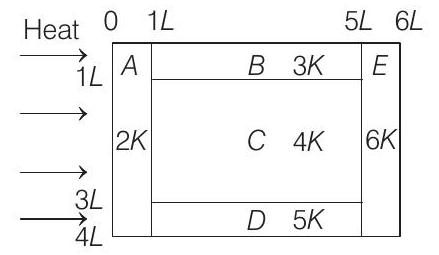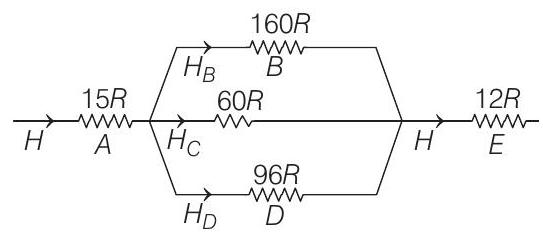Heat and Thermodynamics 3 Question 24
24. A composite block is made of slabs

(a) heat flow through
(b) heat flow through slab
(c) temperature difference across slab
(d) heat flow through
Show Answer
Answer:
Correct Answer: 24. (a,c,d)
Solution:
- Thermal resistance
So, let us write,

In parallel current distributes in inverse ratio of resistance.
and
Temperature difference (let us call it
Here,






